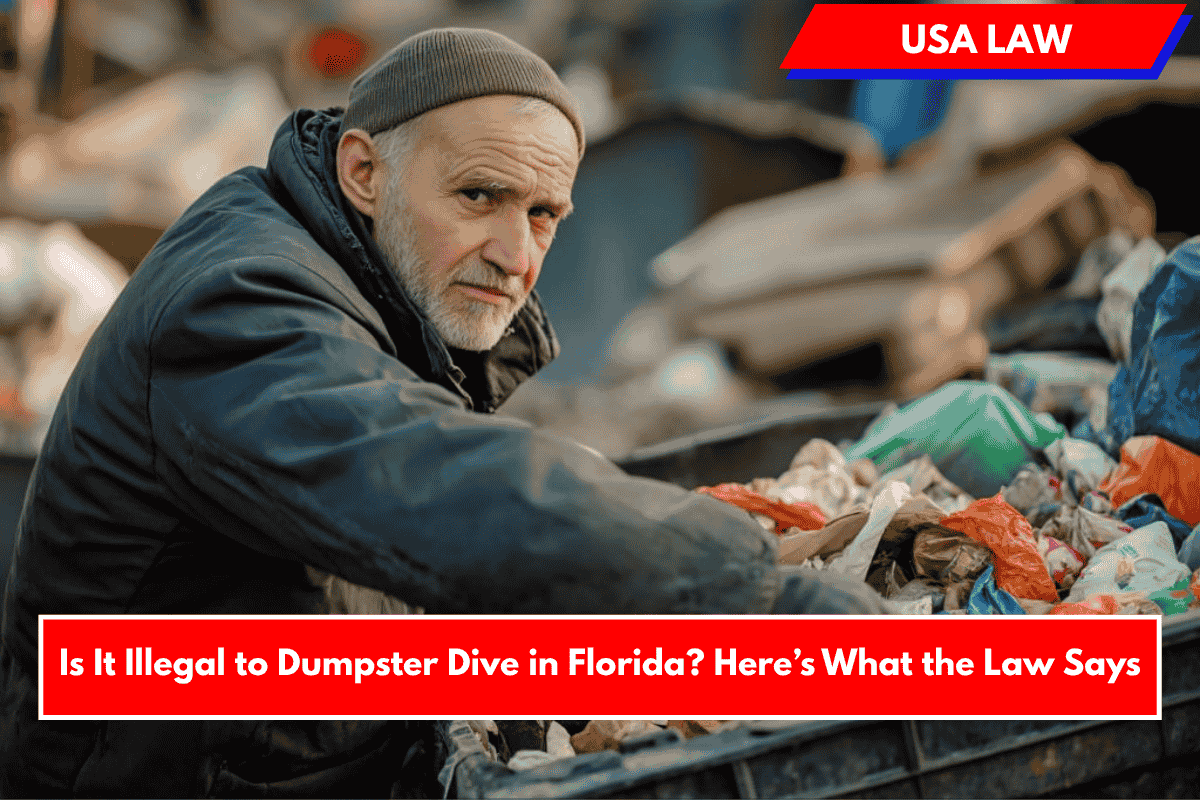Dumpster diving—searching through trash bins for discarded items of value—has become a popular way to save money, reduce waste, and even find hidden treasures. But is it legal in Florida? The answer is nuanced and depends on where and how you dive. Here’s a comprehensive breakdown of Florida’s dumpster diving laws, risks, and best practices.
Federal and State Law: The Supreme Court Precedent
Dumpster diving is technically legal in all 50 states, including Florida, due to the 1988 Supreme Court decision in California v. Greenwood. The Court ruled that trash placed in a public area (like a curb) is considered abandoned and there is no reasonable expectation of privacy. This means, at the federal and state level, you are generally allowed to search through trash that is publicly accessible.
Public vs. Private Property: The Deciding Factor
The legality of dumpster diving in Florida hinges on whether the dumpster is on public or private property:
- Public Property: If a dumpster is in a public place—such as a city street, public park, or alley—dumpster diving is generally legal. You can search through trash bins that are not behind fences, locked gates, or marked with “No Trespassing” signs.
- Private Property: Most dumpsters behind businesses, in apartment complexes, or in fenced areas are on private property. Entering these areas without permission is considered trespassing, which is illegal in Florida. Even if there are no signs, stepping onto private property to access a dumpster can result in fines, arrest, or even jail time.
| Location | Legal to Dumpster Dive? | Notes |
|---|---|---|
| Public sidewalk | Yes | As long as there are no local ordinances prohibiting it |
| Behind a store | No (without permission) | Usually private property; trespassing laws apply |
| Apartment complex | No (without permission) | Private property; may be fenced or signed |
| Public park | Yes | Unless local rules say otherwise |
Local Ordinances: Patchwork Rules Across Florida
While state law does not specifically outlaw dumpster diving, local ordinances can further restrict or prohibit the practice. Some Florida cities and counties have rules that ban scavenging, rummaging, or removing items from waste containers. For example, in Palm Beach County, all solid waste generated by a household is considered government property, making removal technically illegal.
Always check your city or county’s municipal code before diving. Local governments can issue citations or fines for violating these ordinances, even if you are not trespassing.
Warning Signs, Locks, and Business Policies
If a dumpster is locked, fenced, or marked with “No Trespassing” or “Private Property” signs, it is illegal to access it. Tampering with locks or ignoring posted warnings can result in criminal charges, including trespassing or theft.
Businesses may also have their own policies against dumpster diving. Even if the law doesn’t explicitly prohibit it, store managers can ask you to leave and ban you from the premises. Repeat violations can escalate to criminal trespass charges.
Potential Legal Consequences
Engaging in dumpster diving on private property or in violation of local ordinances can lead to:
- Trespassing charges (misdemeanor, fines, or jail time)
- Fines for violating local waste or sanitation ordinances
- Possible theft charges if the owner claims the discarded items are still their property
- Being banned from certain stores or locations
Best Practices for Legal Dumpster Diving in Florida
- Stick to public property: Only access dumpsters that are clearly in public spaces.
- Check for signs: Avoid dumpsters with “No Trespassing” or “Private Property” warnings.
- Respect fences and locks: Never jump fences or break locks to access a dumpster.
- Know local laws: Research your city or county’s ordinances on scavenging or waste removal.
- Be discreet and respectful: Don’t make a mess, and leave the area cleaner than you found it.
- Get permission: When in doubt, ask property owners or managers for consent.
Dumpster diving in Florida is legal in many circumstances, but the practice is tightly regulated by property rights and local ordinances. On public property, and where not prohibited by local law, it is generally allowed. On private property, or where posted signs or fences are present, it is illegal without explicit permission. Always check local rules and respect private property to avoid fines, arrest, or other legal trouble.
Sources
- https://www.reddit.com/r/DumpsterDiving/comments/16ileei/so_it_is_illegal_dive_in_some_dumpsters/
- https://www.findlaw.com/legalblogs/criminal-defense/is-it-legal-to-dumpster-dive/
- https://sirixmonitoring.com/blog/is-dumpster-diving-illegal-in-florida/
- https://www.handycandumpsters.com/is-dumpster-diving-illegal-on-private-property-in-florida
- https://www.findlaw.com/injury/torts-and-personal-injuries/dumpster-diving.html











